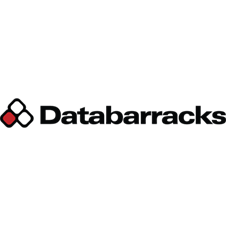Databarracks: Seven business continuity lessons from fire at The Law Society
At the end of last year, we held a webinar about Recovering from Disasters in Legal. We were very lucky to have Tom Booton, Head of Corporate Real Estate at The Law Society talk about the fire at their offices in early 2020. You can watch the recording of the webinar here
Tom shared some fascinating lessons from the experience, applicable beyond the legal industry and especially interesting to those with historic premises.
1. Contact your insurer immediately
Rather than waiting, you can get in contact straight away, even during the incident to kick-start the recovery process.
Getting your loss adjuster appointed immediately speeds up your recovery because you can get their support for what you plan to do. The Law Society were able to start appointing suppliers to help with the recovery, with the approval of the loss adjusters while Fire Brigade was still dealing with the fire. As soon as the Fire Brigade agreed that the site was safe to enter, they were ready to get started.
You will be working with your insurance company on this incident for a long time. Claims will need to be allocated to the right policy, such as Building and Contents or Business Interruption which will take time so building a good rapport and working relationship is vital.
2. Don’t try to rescue electrical devices
People will keen to enter the building as soon as it is declared safe to recover personal items. Don’t let them – although the fire may be extinguished, chemicals have been released and the dust coating the building is very dangerous.
There is a temptation to rescue electrical good like laptops to give to staff. Tom shared a lesson that they learned during the recovery. These items may not look damaged but smoke particles gather on circuit boards and moisture in the air turns the particles acidic. It corrodes motherboards and creates system failures as well as creating the potential for sparking and causing future fires.
3. Water does more damage than the fire
“While the fire is going up the building, water is coming back down”. Plaster ceilings can become exceptionally heavy, when soaked with water. They can hold a lot of weight which then puts strain on the infrastructure of the building.
The water will also accumulate and cause flooding, in this case, in the basement. The Fire Brigade was able to help The Law Society by pumping water out of the basement after the fire had been extinguished. Tom recommended thinking about what you store in your basement. Many organizations store important archives in basement space which could be damaged.
4. Close doors
This is something you will already know if you’ve ever had fire-safety training – but Tom was able to share evidence of the difference it really makes. Tom shared photos of doors completely burned on one side and relatively unmarked on the other Keeping doors closed prevents fire from spreading. Even doors that are not fire-rated will have an effect. It buys the Fire Brigade time to get the situation under control.
5. WhatsApp was the best method of communications
The Law Society’s fire occurred out of office hours. In terms of personal safety – that was good timing. The downside of the incident occurring on a Saturday night was that it was more difficult to get in contact with the Crisis Management Team. He wasn’t able to immediately reach everyone on crisis team so setup an internal WhatsApp group and another group with his Facilities Management supplier.
There is often reticence to use personal-messaging apps for emergency communications because of security concerns This information wasn’t sensitive so presented a relatively low-risk and brought together everyone involved to understand the situation quickly. It turned out to be the most effective channel to share information quickly.
6. Remote working doesn’t work if everyone leaves their devices in the office
The Law Society were fortunate in some ways with the timing of the incident because they had recently moved to remote-working using Surface Pros rather than fixed desktops in the office.
As we’ve learned with Coronavirus, that flexibility is very valuable. Unfortunately, many people did not take their devices home with them.
Encouraging staff to take devices home improves resilience and removes an extra step in the recovery of sourcing and distributing replacement devices.
7. Work with the Fire Brigade
Tom stressed how impressive the Fire Brigade was throughout this experience. On the journey to the fire they had already researched the building and knew which areas should be prioritized for their heritage and historical significance. Not everyone is aware, but once safe, they will try to project valuable items.
The Law Society and Fire Brigade communicated throughout the incident and afterwards, gave post-incident recommendations for improvements. These included keeping a firebox at every entrance. In that firebox you should have: up to date building plans, a list of valuables and the locations, torches, PPE and your contact list.



